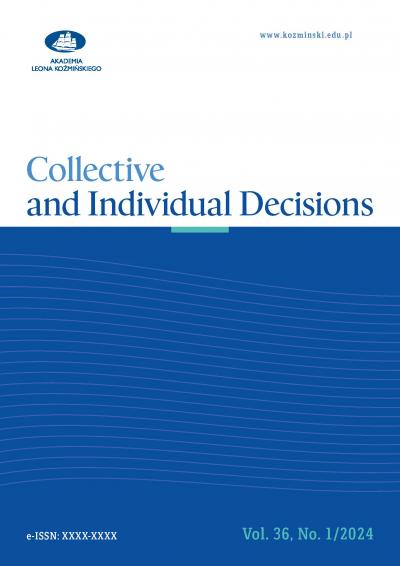O dwóch typach randomizacji w decyzjach dystrybucyjnych
Wojciech Załuski
Uniwersytet Jagielloński w Krakowie
6/2019 (31) Decyzje
DOI 10.7206/DEC.1733-0092.120








